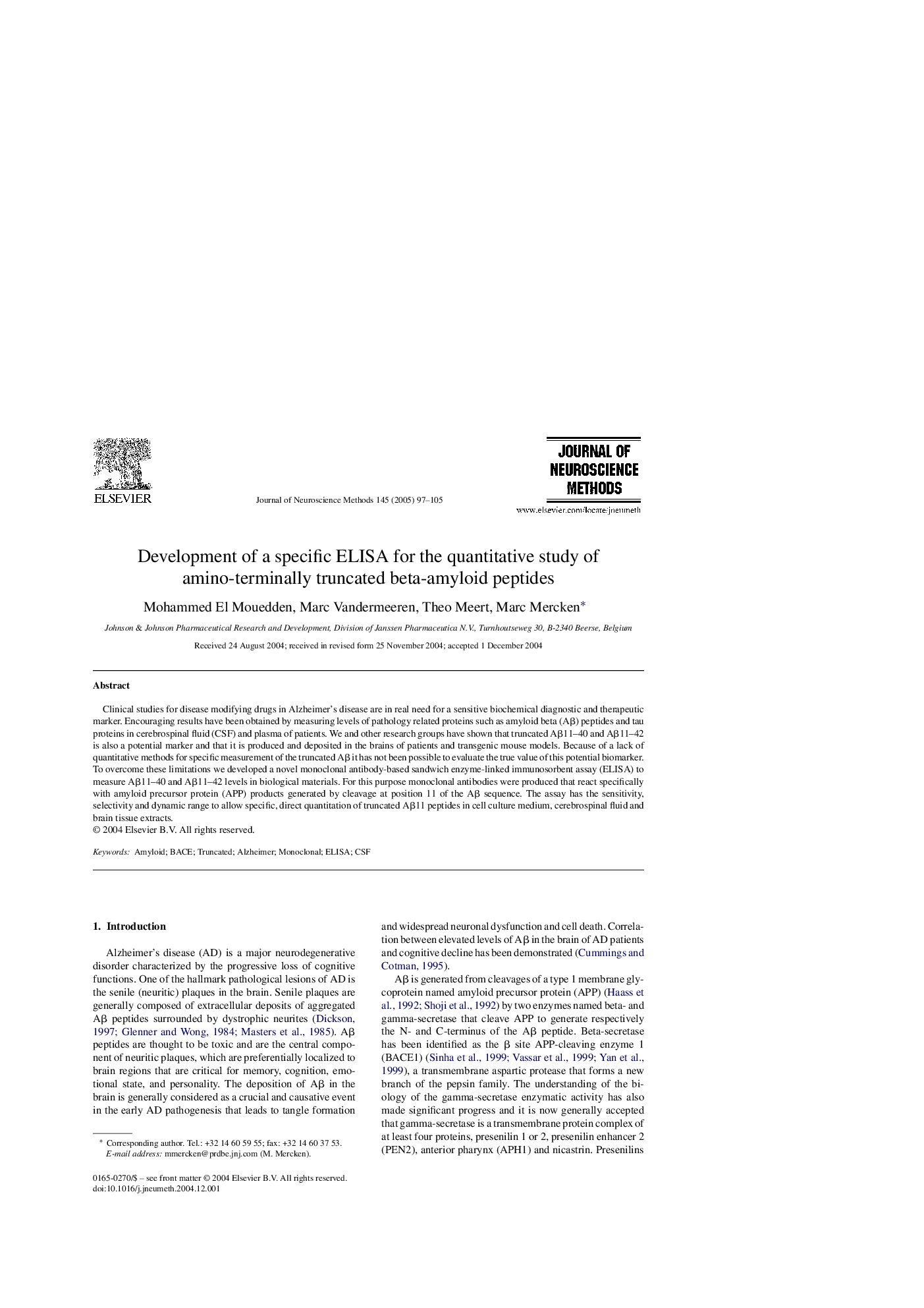| Article ID | Journal | Published Year | Pages | File Type |
|---|---|---|---|---|
| 9424201 | Journal of Neuroscience Methods | 2005 | 9 Pages |
Abstract
Clinical studies for disease modifying drugs in Alzheimer's disease are in real need for a sensitive biochemical diagnostic and therapeutic marker. Encouraging results have been obtained by measuring levels of pathology related proteins such as amyloid beta (Aβ) peptides and tau proteins in cerebrospinal fluid (CSF) and plasma of patients. We and other research groups have shown that truncated Aβ11-40 and Aβ11-42 is also a potential marker and that it is produced and deposited in the brains of patients and transgenic mouse models. Because of a lack of quantitative methods for specific measurement of the truncated Aβ it has not been possible to evaluate the true value of this potential biomarker. To overcome these limitations we developed a novel monoclonal antibody-based sandwich enzyme-linked immunosorbent assay (ELISA) to measure Aβ11-40 and Aβ11-42 levels in biological materials. For this purpose monoclonal antibodies were produced that react specifically with amyloid precursor protein (APP) products generated by cleavage at position 11 of the Aβ sequence. The assay has the sensitivity, selectivity and dynamic range to allow specific, direct quantitation of truncated Aβ11 peptides in cell culture medium, cerebrospinal fluid and brain tissue extracts.
Related Topics
Life Sciences
Neuroscience
Neuroscience (General)
Authors
Mohammed El Mouedden, Marc Vandermeeren, Theo Meert, Marc Mercken,
